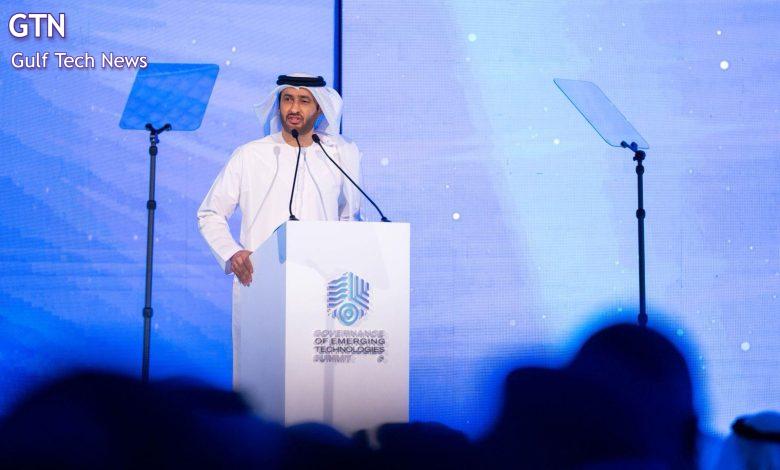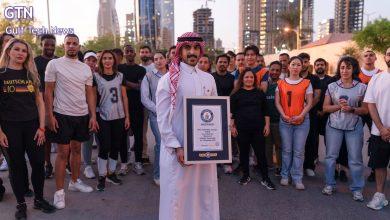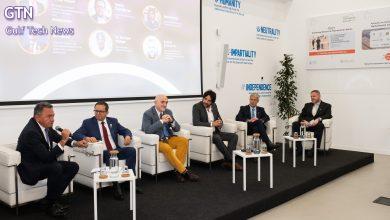GETS 2025 concludes this week in Abu Dhabi, marking a new era in global technology governance

- More than 2,000 participants from over 20 countries gathered in Abu Dhabi for two days of high-level discussions
- Speakers included ministers, attorney generals, global tech leaders, and youth representatives
- UAE Public Prosecution launched its Artificial Intelligence Strategy 2025–2030, setting a new standard for legal innovation
The Governance of Emerging Technologies Summit (GETS 2025) concluded this week in Abu Dhabi with a powerful call for collective global action to govern the technologies shaping our societies. Hosted by the Advanced Technology Research Council (ATRC) in strategic partnership with the UAE Public Prosecution, the summit convened a diverse community of policymakers, technologists, legal experts, academics, and youth leaders from more than 20 countries.
Held under the patronage of His Highness Sheikh Mansour bin Zayed Al Nahyan, Vice President and Deputy Prime Minister of the United Arab Emirates and Chairman of the Presidential Court, the two-day event served as a platform for meaningful exchange at the intersection of law, innovation, and public policy. With over 70 speakers contributing, discussions tackled the growing need to align emerging technologies with ethical standards and governance structures that are future-ready, inclusive, and internationally coherent.
The strategic partnership of the UAE Public Prosecution was central to the summit’s vision and execution. As an institution committed to advancing the rule of law, its role helped anchor the summit’s discussions in legal integrity and accountability, while championing innovation within the justice system.
HE Faisal Abdulaziz Al Bannai, Advisor to the UAE President for Strategic Research and Advanced Technology Affairs and Secretary General of ATRC, said: “GETS 2025 reflects the UAE’s ambition to not only lead in advanced technologies, but to shape how it is governed. We are proud to have convened such a wide range of perspectives and to have sparked conversations that will shape the policies and systems our future depends on.”
The UAE Public Prosecution’s strategic partnership in the summit was instrumental in grounding the conversation in the rule of law, transparency, and institutional accountability. Their leadership underscored the role of justice systems in keeping pace with technological change while safeguarding public trust.
The summit opened with a clear message: innovation cannot exist in isolation from governance. As artificial intelligence, quantum computing, and Web3 applications accelerate globally, GETS 2025 underscored the responsibility of both governments and industry leaders to develop principles, policies, and infrastructure that protect rights while enabling progress.
The agenda spanned topics including AI regulation, cross-border data flows, synthetic content and deepfakes, digital identity systems, quantum security, healthcare, education reform, and the use of autonomous systems in civil defence.
A major milestone of the summit was the UAE Public Prosecution’s launch of its Artificial Intelligence Strategy 2025–2030. The strategy outlines a proactive and values-led approach to integrating AI into the country’s judicial ecosystem. It aims to enhance access to justice, reduce case resolution time, and build a legal system that can anticipate rather than simply respond to challenges.
This announcement positioned the UAE at the forefront of legal innovation globally, demonstrating a commitment to harnessing emerging technology without compromising ethical or procedural integrity.
HE Chancellor Dr Hamad Saif Al Shamsi, Attorney General of the UAE, said: “The strategy we launched is a statement of intent. We are ready to harness AI in service of justice, built on transparency, efficiency, and ethics. It is about creating a legal system that can anticipate challenges, protect rights, and deliver justice more effectively for all.
At the same time, this summit has proven that international dialogue is not optional but essential in a rapidly changing world. We cannot govern the future in silos, and the UAE is proud to host this global platform and to work with partners around the world to build shared frameworks for responsible and ethical technology governance.”
The summit also witnessed the signing of two cooperation agreements: one between TRENDS Research & Advisory and ExHub, and another between the UAE Public Prosecution and Mohamed bin Zayed University of Artificial Intelligence (MBZUAI), reflecting the commitment of the concerned parties to strengthening knowledge and technology partnerships in the fields of research, justice, and innovation.
Other key speakers included HE Omar Sultan Al Olama, UAE Minister of State for Artificial Intelligence, Digital Economy, and Remote Work Applications; HE Sarah bint Yousef Al Amiri, UAE Minister of Education; HE Maryam bint Ahmed Al Hammadi, UAE Minister of State and Secretary General of the UAE Cabinet; Changpeng Zhao, Founder of Binance; Dr. Najwa Aaraj, CEO of the Technology Innovation Institute; and HE Judge Dr Mohammed Obaid Al Kaabi, Head of Sharjah Judicial Department. Youth councils from Dubai, Fujairah, Umm Al Quwain, and Al Dhafra contributed to the dialogue, offering perspectives on the future of AI literacy and intergenerational policymaking.
GETS 2025 was supported by national and international partners, including the Technology Innovation Institute, ASPIRE, TRENDS Research and Advisory, the UAE Space Agency, the Cybersecurity Council, Mohamed bin Zayed University of Artificial Intelligence, and leading institutions such as Microsoft, Cisco, Honeywell, BP, Byteplus, PwC, OECD, INTERPOL, and UNODC. Their contributions played a vital role in shaping the summit’s success and reinforcing the value of cross-sector collaboration in emerging technology governance.
GETS 2025 concluded with a shared recognition that governing emerging technologies is no longer a future task. It is a present necessity. The summit laid the foundation for continued collaboration between nations, institutions, and industries as the world confronts a rapidly evolving digital reality.




